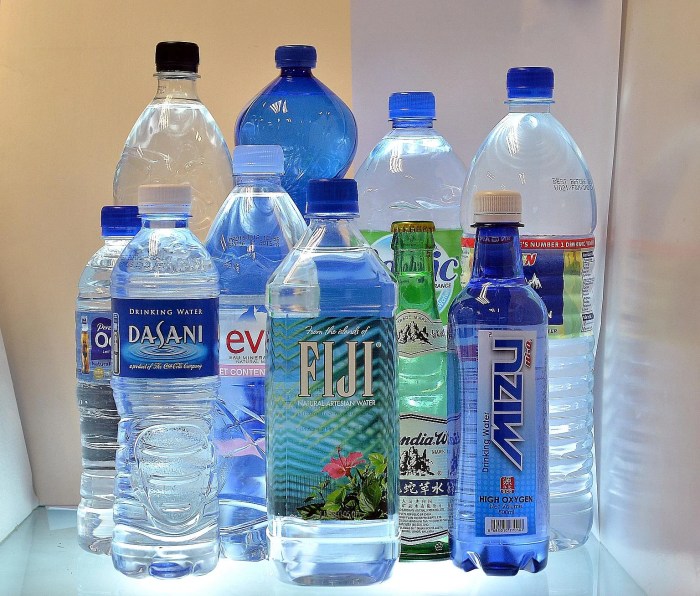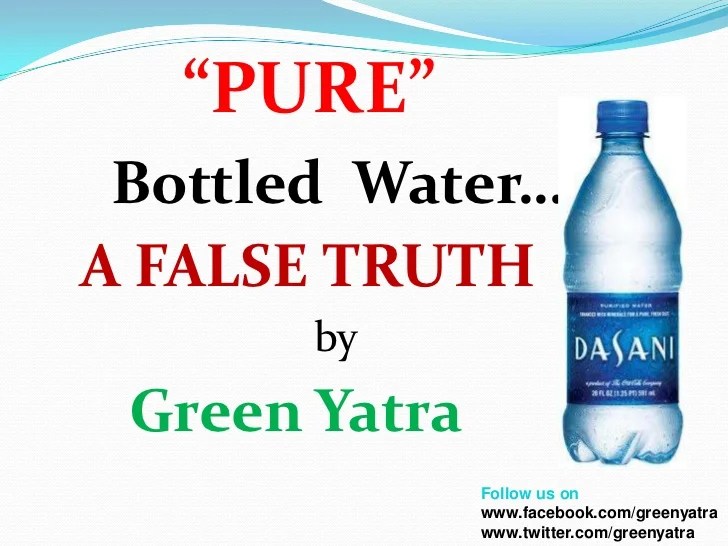The truth behind bottled water answer key uncovers the misconceptions, environmental concerns, health risks, and economic considerations associated with bottled water consumption. This comprehensive analysis sheds light on the industry’s impact on the environment and human health, challenging the perceived benefits of bottled water.
Bottled water has become a ubiquitous presence in our lives, marketed as a convenient and healthier alternative to tap water. However, the reality is far more complex. This discussion delves into the hidden costs and potential hazards of bottled water, providing a comprehensive understanding of its true impact.
Introduction
Bottled water has become a ubiquitous presence in our daily lives, often perceived as a healthier and more convenient alternative to tap water. However, misconceptions abound about the safety, environmental impact, and economic implications of bottled water consumption.
The bottled water industry has grown exponentially in recent decades, driven by aggressive marketing campaigns and consumer perceptions of its purity and convenience. However, a closer examination reveals a more complex reality, raising concerns about environmental sustainability, potential health risks, and economic disparities.
Environmental Impact
The environmental toll of bottled water production and disposal is significant. The manufacturing process requires vast amounts of energy and water, while the disposal of plastic bottles contributes to landfills and plastic pollution in oceans and waterways.
According to a study by the World Wildlife Fund, the production of one liter of bottled water consumes three liters of water. Furthermore, the plastic used in bottled water bottles takes hundreds of years to decompose, creating a lasting environmental burden.
Plastic Waste and Marine Life, The truth behind bottled water answer key
Plastic pollution from bottled water bottles poses a severe threat to marine life. Microplastics, tiny fragments of plastic, are ingested by marine organisms, disrupting their digestive systems and potentially entering the human food chain.
Sea turtles, whales, and other marine animals often mistake plastic bottles for food, leading to entanglement, starvation, and death.
Health Concerns

While bottled water is often perceived as healthier than tap water, studies have raised concerns about potential health risks associated with its consumption.
Microplastics, as mentioned earlier, can leach into bottled water during storage and transportation. These tiny particles can accumulate in the human body and have been linked to inflammation and other health issues.
Chemical Contaminants
Bottled water may also contain chemical contaminants, such as phthalates and BPA, which can disrupt the endocrine system and potentially lead to developmental and reproductive problems.
In addition, some bottled water sources may be contaminated with bacteria or other microorganisms, posing a health risk to consumers.
Economic Considerations: The Truth Behind Bottled Water Answer Key

Bottled water is significantly more expensive than tap water. In some cases, a liter of bottled water can cost hundreds of times more than the same amount of tap water.
The economic burden of bottled water consumption falls disproportionately on low-income households and communities without access to clean tap water.
Social and Economic Implications
The reliance on bottled water has social and economic implications beyond its direct cost. It perpetuates a cycle of waste and environmental degradation, while undermining investment in public water infrastructure.
Moreover, the commodification of water as a luxury product exacerbates social inequalities and undermines the right to safe and affordable water for all.
Regulation and Standards

Bottled water production and labeling are regulated by government agencies in most countries. However, the regulations governing bottled water often differ from those for tap water.
In the United States, the Food and Drug Administration (FDA) regulates bottled water as a food product, while the Environmental Protection Agency (EPA) regulates tap water as a public utility.
Enforcement of Regulations
The enforcement of bottled water regulations can vary widely, and some studies have found that bottled water may not always meet the same safety standards as tap water.
Furthermore, the lack of uniform regulations across jurisdictions can lead to inconsistencies in the quality and safety of bottled water products.
Alternatives to Bottled Water
There are several viable alternatives to bottled water that can help reduce environmental impact, health risks, and economic burden.
- Reusable Water Bottles:Using reusable water bottles can significantly reduce plastic waste and save money in the long run.
- Tap Water Filtration Systems:Installing a tap water filtration system can provide clean and safe drinking water at a fraction of the cost of bottled water.
- Public Water Fountains:Public water fountains offer a convenient and free source of clean drinking water, reducing the need for bottled water.
Questions Often Asked
Is bottled water safer than tap water?
While bottled water may meet certain safety standards, it is not necessarily safer than tap water. Tap water in developed countries is subject to stringent regulations and undergoes regular testing to ensure its quality.
What are the environmental impacts of bottled water?
Bottled water production and disposal contribute to plastic pollution, which harms marine life and ecosystems. The energy required to produce and transport bottled water also has a significant environmental footprint.
Is bottled water more expensive than tap water?
Yes, bottled water is significantly more expensive than tap water. The cost of bottled water can be hundreds of times higher than the cost of tap water, making it an unnecessary financial burden.